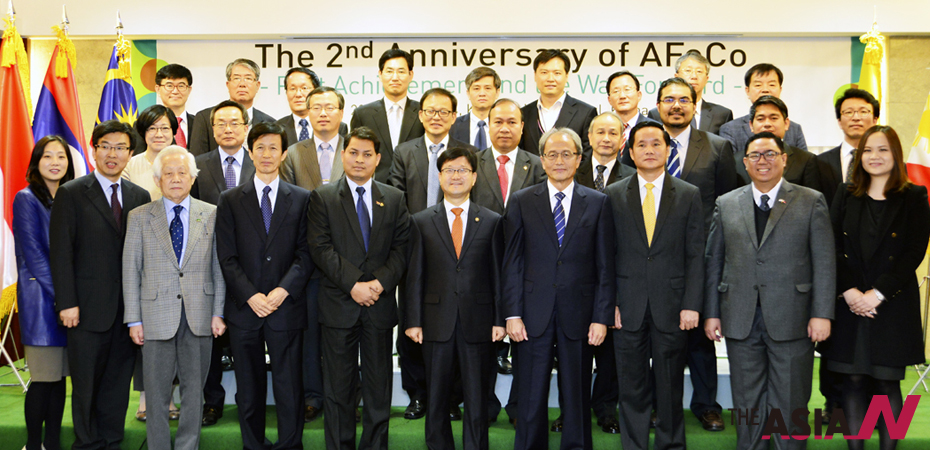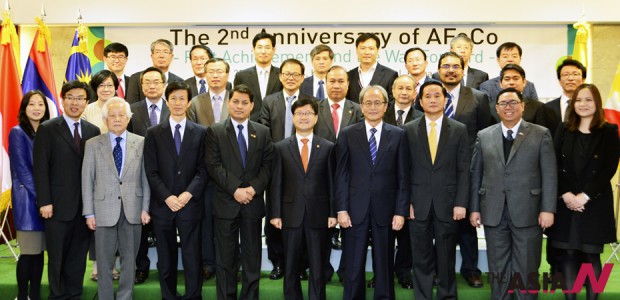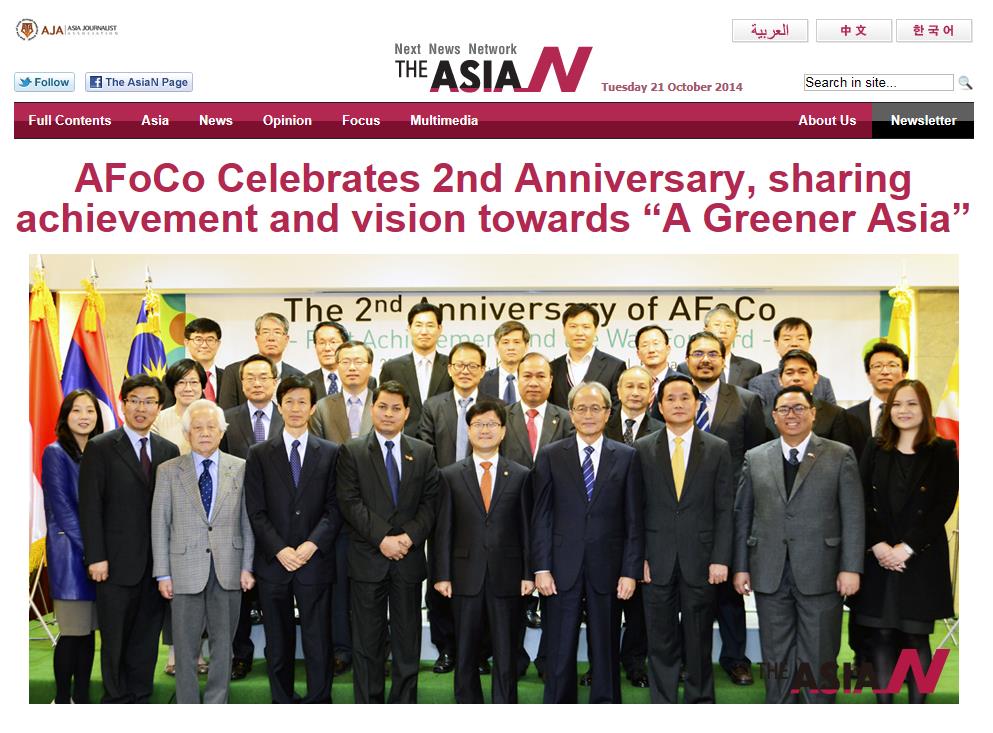
AFoCo Celebrates 2nd Anniversary, sharing achievement and vision towards “A Greener Asia”

ASEAN-ROK Forest Cooperation (AFoCo) celebrated its 2nd Anniversary on 20th October 2014 in Seoul, Korea.
The AFoCo is a regional cooperation mechanism in forest sector, which was formalized upon the entry into force of the “Agreement between the Governments of the Member States of the Association of Southeast Asian Nations and the Republic of Korea on Forest Cooperation” on 5 August 2012.
Since its launching in 2012, the AFoCo has been undertaking various cooperation activities to rehabilitate the degraded forest ecosystems in Southeast Asia and manage forest for climate change mitigation among its member countries, namely Brunei Darussalam, Cambodia, Indonesia, Lao PDR, Malaysia, Myanmar, Philippines, Singapore, Thailand, Vietnam and the Republic of Korea.
Korea, who proposed the idea of the AFoCo at the ASEAN-ROK Commemorative Summit in 2009, continues its efforts to share the experience of the New Village Movement (Saemaul Undong) and the successful national greening of Korea in 1960s and 1970s and transfer the knowledge of applying Remote Sensing and GIS technology to forest management by holding various technical workshops, trainings, and cooperation projects, contributing to enhance the capacity of forest restoration in Southeast Asia.
At the 2nd anniversary reception, AFoCo shared its achievements and the way forward towards greener Asia, with invited guests including Ambassadors of ASEAN Member States, relevant Korean government officials from forestry and foreign affairs, and other international organizations whose headquarters are based in Korea.
The AFoCo is about to take a leap forward to evolve into an international forest organization expanding its regional scope to wider Asia, further including Central and Southwest Asian regions.
Through four rounds of Dialogue meetings for the Establishment of Asian Forest Cooperation Organization (AFoCO), 15 prospective member countries, adding Bhutan, Kazakhstan, Mongolia, and Timor-Leste to the current 11 member countries of AFoCo, have narrowed down different views and mutually agreed on most of the issues and are expecting to finalize the internal process of establishing the AFoCO in 2015.
At the reception, vision and strategy of “AFoCo Landmark Program” was also introduced. The AFoCo Landmark Program is a long-term regional cooperation program with holistic approach to induce capacity building on forest restoration and sustainable forestry in Southeast Asia, which will set a cooperation model among ASEAN Member States and Korea in the field of forest.
Through the AFoCo Landmark Program, AFoCo Regional Education and Training Center will be established in Hmawbi, Myanmar to run regular courses of trainings utilizing the training modules developed through this program. The modules will be developed to cover conventional as well as recent technology and issues in the field of forestry and aim to be transferred to each member county to utilize them for their domestic trainings.
Along with this capacity building activities, it was announced as well that a model forest of AFoCo will be established in Cambodia, Lao PDR and Vietnam to demonstrate best practice in forest rehabilitation in Southeast Asia.
Dr. Hadi Susanto Pasaribu, the first Executive Director of AFoCo, addressed, that “the AFoCo has accomplished various achievements in spite of such a short history thanks to bountiful interest and support from each member country,” and he urged that the AFoCo “will continue our efforts of meaningful and actual cooperation among our member countries through action-oriented approach.”



